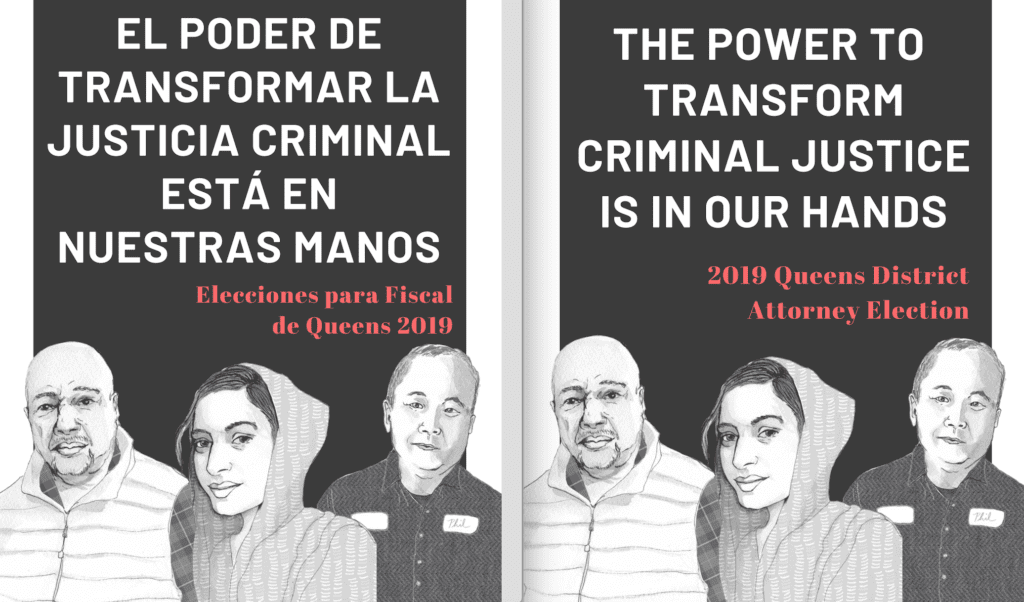Sophie Walker
Court Watch NYC
New York, NY
During the month of June, I focused mostly on the Queens district attorney (DA) race and the closing of the New York State legislative session—a crash course in elections and New York State legislation as a political newbie. Elected officials are supposed to be accountable to their constituents (the people that elect them), but in practice, it’s complicated, and there are different methods of holding them accountable.
Political education is a means of engaging and empowering communities, and one way is to remind people to go out and vote when there is an upcoming election. In this vein, I worked with court watchers over a period of three weeks to distribute thousands of copies of an informational booklet written in English, Spanish, and Mandarin at subway stations in Queens (Flushing, Jackson Heights, Long Island City, Jamaica, and Astoria) during rush hour and at the end of the work day.
The booklet uses observations from court watchers in Queens to highlight the immense power and discretion of prosecutors. The booklet also stresses the power of the prosecutor: “In criminal court, the prosecutor is referred to as ‘The People.’ The District Attorney’s decisions are being made in our names” (p. 3). The anonymity in the title, The People, perfectly encapsulates the power and discretion that prosecutors hold; because of prosecutorial immunity, in most states, they cannot be subject to civil or criminal lawsuits for misconduct.
In one of my first weeks with Court Watch, I attended Color of Change’s Prosecutor Accountability Convening. Organizations and individuals from around the country gathered to reflect on how communities can effectively hold the chief law enforcement officer (the most powerful cop in each county) accountable. But is it even possible to do so? There are different answers. In the eyes of prison abolitionists, the prosecutor will always be adversarial, and the goal is to shrink and ultimately abolish the DA position and office entirely. There are also reformists who might want to work in collaboration with the DA’s office, expanding DA resources to make “better” practices. There has been no precedent for transparency or communication in DA offices, and it has been the norm that the same person is the DA for decades. In Queens, for example, Richard Brown was the DA for 28 years, and in Boston, Daniel Conley was the DA 16 years.
The June 25 Queens DA Democratic primary (essentially the winner, as a Republican will most likely not win in November) was a highly-anticipated local election that received lots of national and international press. The big contenders were two women from Queens: Tiffany Cabán, a queer Puerto Rican public defender, and Melinda Katz (or Melissa, as referred to by Cuomo), a career politician. Katz is also currently the Queens borough president, a former city council member, and a lobbyist for real-estate developers. This election has been highly contested, as noted in two amNew York articles from July 25 and July 17.
Until next time…
